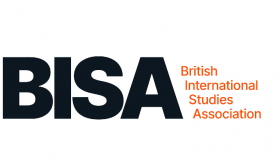
Breadcrumbs navigation
Consultation on the REF timetable – joint BISA/PSA response
The Political Studies Association (PSA) and the British International Studies Association (BISA) have, for some years, maintained a joint REF2021 Working Group. This group, chaired by Professor Martin Lodge (LSE), contained a diverse representation in terms of institutions and academic perspectives.
In response to the recent REF consultation exercise, this group has again been consulted for its views, and the responses received considered, in turn, by the leadership of the PSA and BISA. Based on this exercise, the two associations are in agreement on supporting the following positions in relation to REF:
1. While recognising that there are potential advantages and shortcomings from all plausible options, on balance we would prefer a short rather than long delay to the REF; in brief, we favour the submission date for Outputs and the Environment statement being extended to end-March 2021, rather than towards the latter part of 2021. We support this option on the basis that, in most institutions of which we are aware, the bulk of the preparatory work for REF has already been completed. For HEIs that are likely to be under very considerable resource pressure over the next year or more, further delay would likely not really help: it is better for them to be able to submit, and then focus more attention and energy on their many other pressing concerns.
2. There is greater support, and in our view more justification, for allowing a slightly longer delay of the submission of Impact Case-Studies. Current circumstances are not only imposing greater pressures on the people finalising the writing up of such studies; they are also in some instances greatly inhibiting the collection of supporting evidence. On balance, we favour retention of the original deadline for the actual ‘delivery of impact’ at end-July 2020, but think that some mechanism should be found to allow greater time for the case-studies based on that impact to be submitted.
3. One idea that has been proposed to us, and in which we see some merit, would be to add to the REF submission documentation a narrative section for institutions to indicate whether/how the pandemic has affected the UoA.
4. We would support some recognition in the REF process that current circumstances might lead to production delays on some publications; some flexibility may need to be allowed for in this regard.
5. The COVID-19 crisis will affect the research capacity of HEIs for the foreseeable future and may even lead to a fundamental shift in the priorities of the HE sector. HEIs in adapting to the pandemic will face challenges on issues of equality, diversity and inclusion, some of which will affect the latter stages of REF preparation and submission. The REF exercise already includes robust mechanisms for dealing with staff circumstances and for embedding equality measures into its working practices. These should be used to full effect in the assessment phase. Main Panels need to ensure that sub-panels apply equality and diversity considerations consistently. We would also support work that investigates how equality and diversity issues were dealt with by submitting units and REF assessors as a step toward informing the design of any future REF exercise.
Should you have any queries please direct them to Professor Mark Webber: M.A.Webber.1@bham.ac.uk
Professor Roger Awan-Scully – Chair, Political Studies Association
Professor Mark Webber – Chair, British International Studies Association




